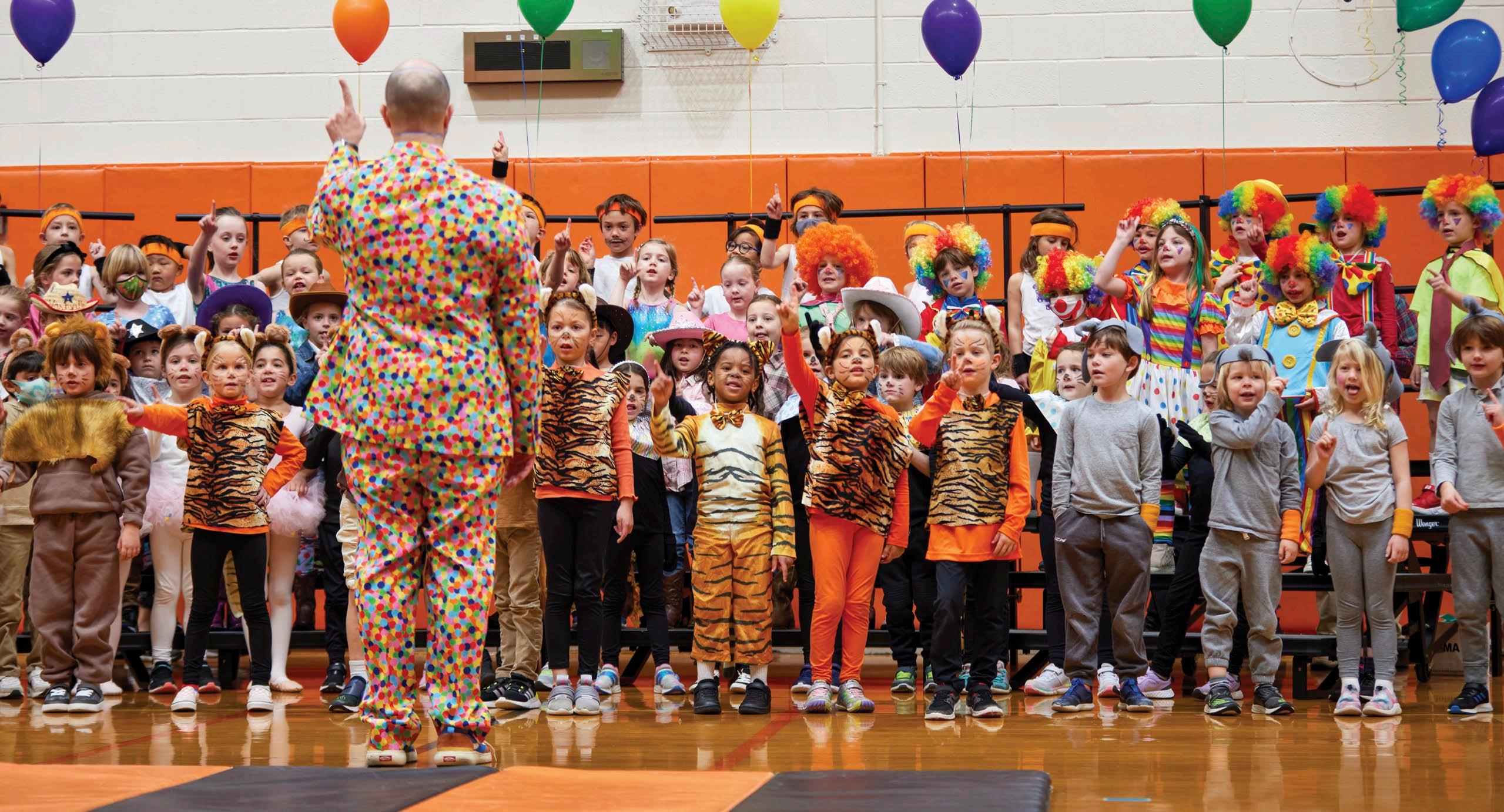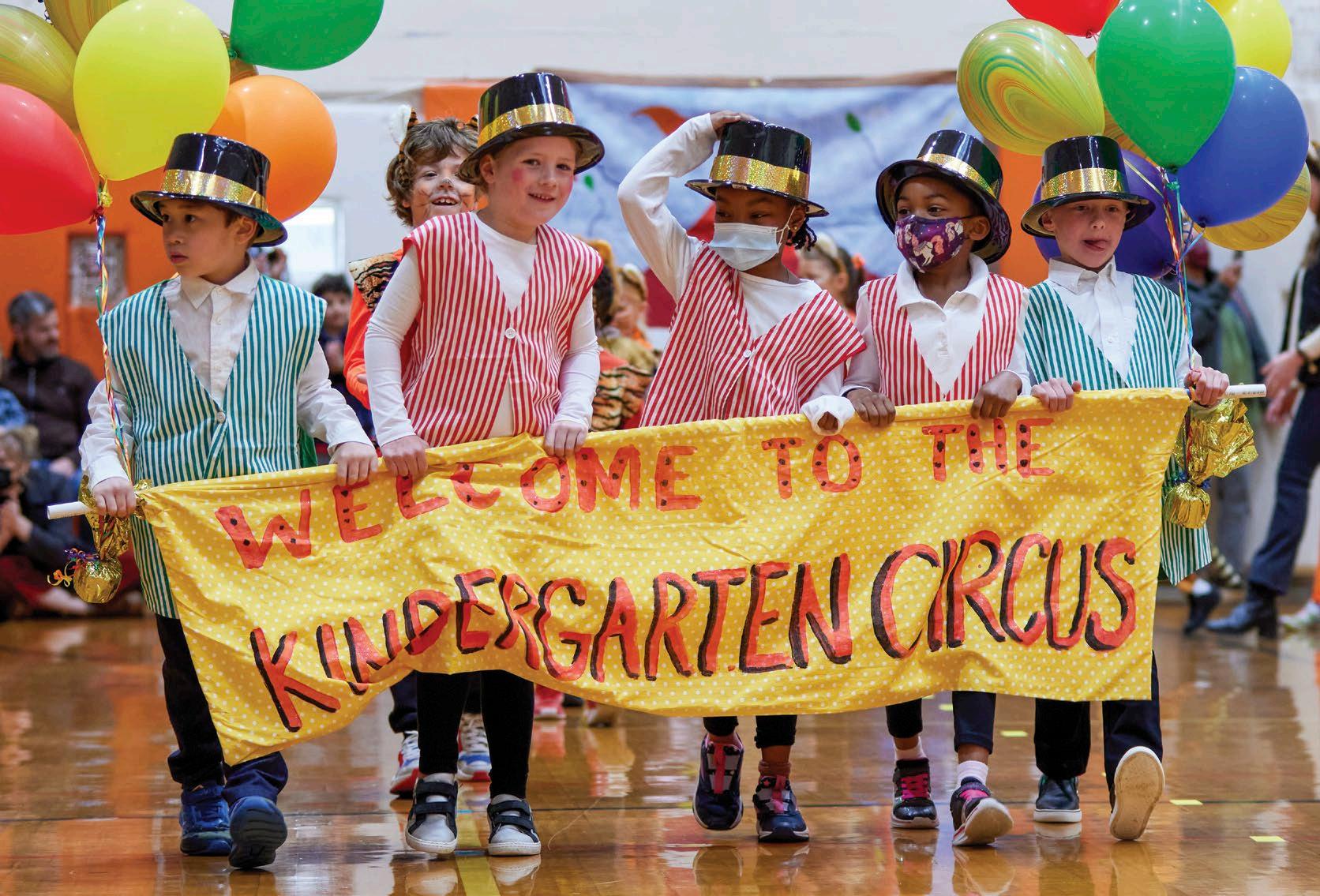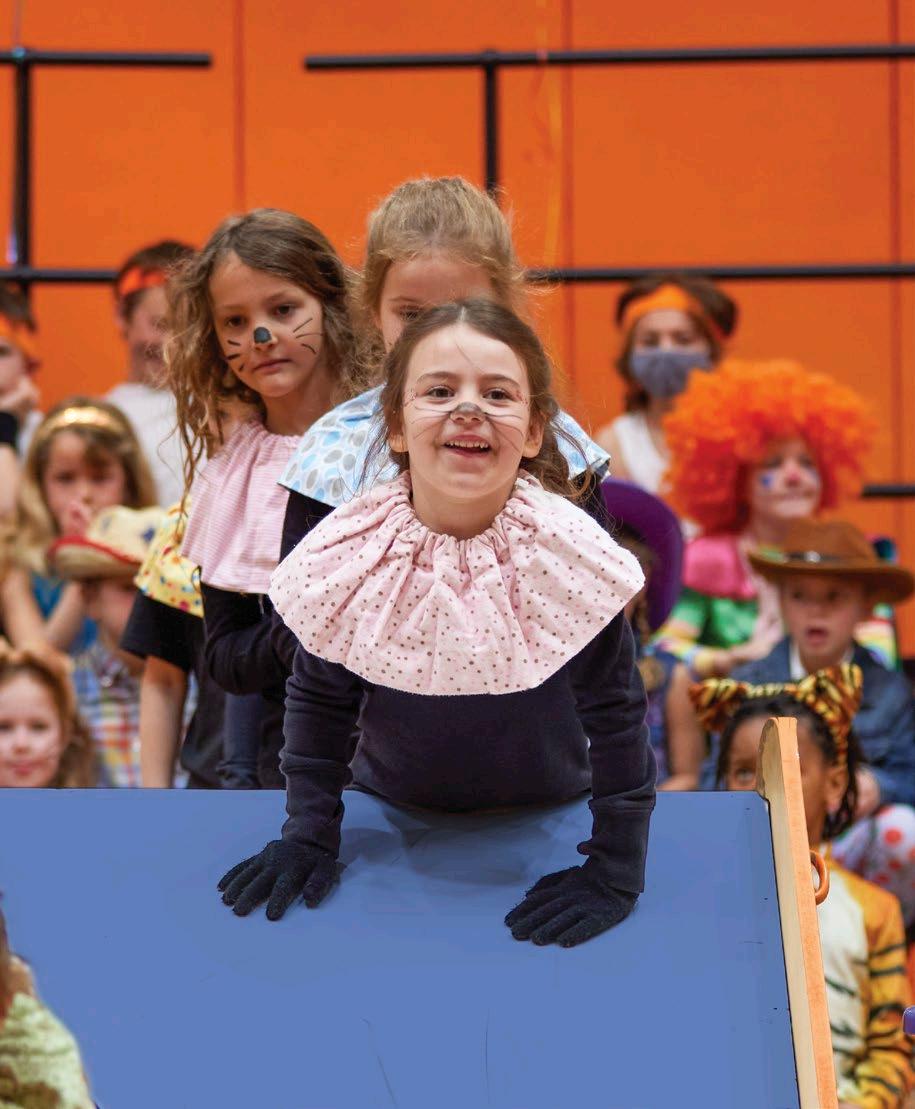
7 minute read
Connection Belonging and
The GCDS Office of Diversity, Equity, and Inclusion (DEI), working with the Board of Trustees DEI Committee and the Parents Association Stripes Committee, has been busy this year with a variety of initiatives, programs, and events—all in service of making connections and reinforcing a sense of belonging for each member of our community. In order to connect and feel truly welcome in a community, we must acknowledge and explore the implicit biases that exist in relation to race, religion, family structure, different learning styles, gender, and even in points of view. In order to connect, we must be curious, ask questions, and make an effort to find common ground with the members of our community. Our aim is to ensure each individual is known, respected, and feels welcome and true belonging, as only then can we teach and learn at optimal levels.
Get Proximate
THASUNDA
BROWN DUCKETT INSPIRES STUDENTS, FACULTY, AND STAFF
As future leaders, if you want to run a company of over a trillion dollars with 15,000 employees around the world or to be successful in whichever career path you follow, you need to connect. And in order to connect, Mrs. Duckett told students, you need to “get proximate.” She suggests that to truly connect, we need to take a step beyond what is seen on the surface—gender or melanin for example—we need to be curious, dig a little deeper. “The surface is not where you start, you ask a few questions, and you connect.” She promises, it won’t take long to find common ground, creating an opportunity for unity in achieving common goals.
Students, faculty, and staff were inspired by a series of talks on May 13 with President and CEO of TIAA Thasunda Brown Duckett. She is one of only two black female CEOs currently leading a Fortune 500 company. Mrs. Duckett and her husband Richard Duckett, a member of the GCDS Board of Trustees, are parents to GCDS students Madison (G10), Myles (G7), and Mackenzie (N). Their oldest son, Brendin Duckett, is a University of Virginia graduate.
Mrs. Duckett introduced herself and pumped up her student audiences with her changemaker song, “Girl on Fire” by Alicia Keys, challenging them to identify the song that they play to inspire them when they are getting ready to make an impact. As she shared the elements that empowered her story, Mrs. Duckett encouraged students to use their platform—starting now—for impact and purpose.
Power Of Information
Mrs. Duckett emphasized the power of information, giving credit to a couple that told her about Inroads, a program that gives minority students exposure to Corporate America, which changed the course of her life. She told students, “when you know something, give it away freely.”
Power Of Advocacy
As part of the Inroads program, Mrs. Duckett interviewed for an internship with Fannie Mae. There was one opening and the recruiter from Fannie Mae selected another young woman. However, without any particular incentive, benefit to herself, or power of position, she told her superiors, “but there is this other girl.” That year, Fannie Mae hired two interns. Due to the power of advocacy, Thasunda Duckett’s career was launched. She advised, “you don’t have to be a CEO to have impact; you can be an advocate now.”
Power Of Disruption
During a business trip to New York with Fannie Mae, a mortgage company president was impressed with a bold response from Mrs. Duckett to a question he posed. The president took notice, and offered her a position with JP Morgan Chase. She disrupted her life to move to New York, where she rose through the company to become CEO of Chase Auto Finance, then CEO of Chase Consumer Banking, and now, President and CEO of TIAA. She shared, “you never know when it will be your shot; answer boldly, confidently, and authentically.”
Power Of Allyship
Mrs. Duckett shared a video for a TIAA mission to #retireinequality, relaying that women retire with 30% less than men. She asked the young men in the audience if they believed they have a role to play in closing that gap. “We can’t say this is a girl problem; it requires all of us to care and to get proximate. It’s a we thing. Ask yourself, what can I do to be the change to help a group of people with less—that’s Tiger Pride, right?”
Power Of Connection
The point of a leader is to connect with the people furthest removed from you, so you can get that person to connect with your vision; so that they show up with purpose; so that they show up doing their job with excellence.” Additionally, Mrs. Duckett encouraged students to surround themselves with people that have expertise and experience different from their own and most importantly, those that will provide perspective based on their unique backgrounds—to cover blind spots they may have. “You have to be OK with getting proximate to others.”
Mrs. Duckett emboldened students to flex on Tiger Pride values now so that muscle is strong when they have the platform to make the greatest impact. “You are the future changemakers, you will have the platform, what will you do with it?”
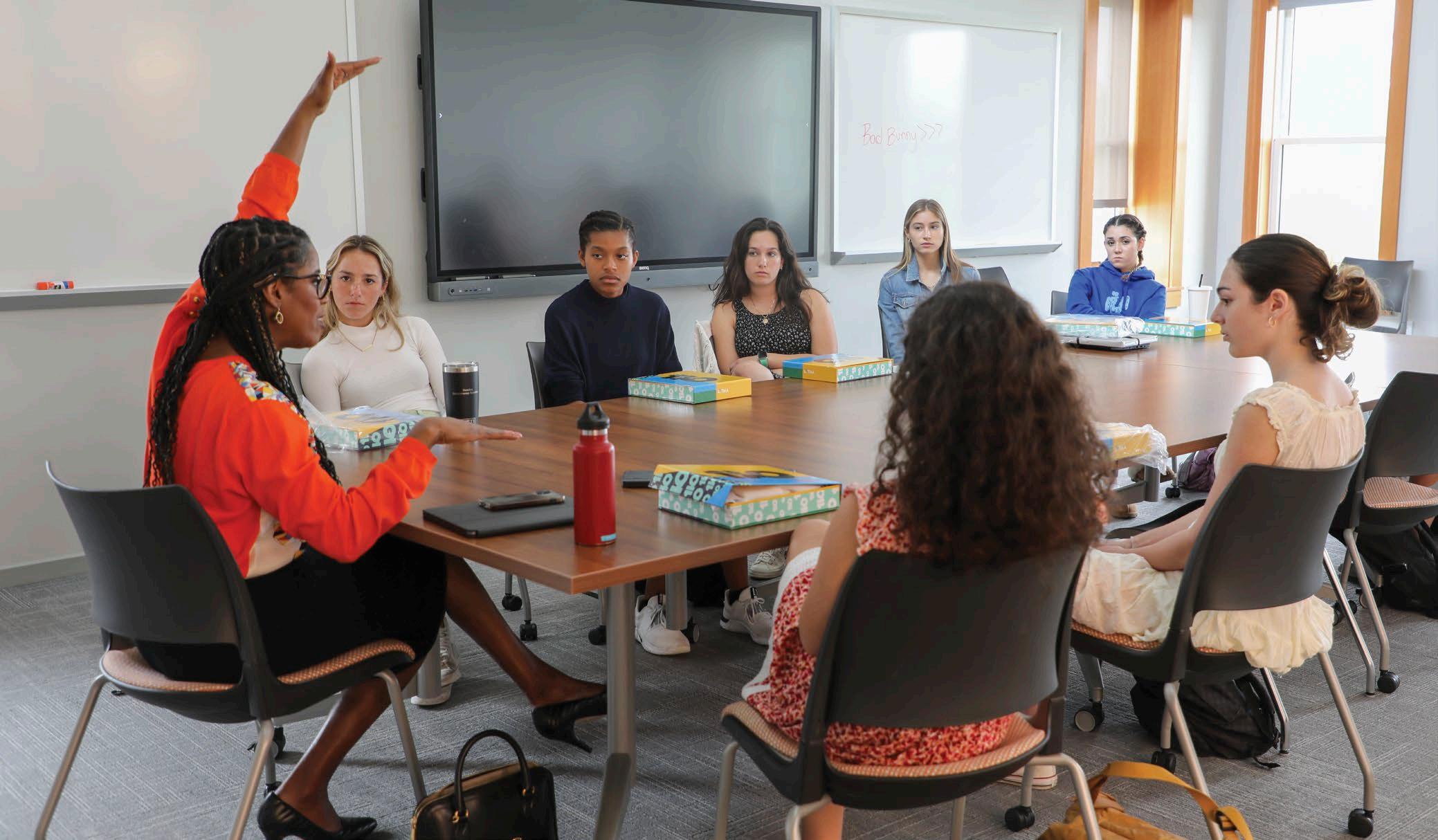
Thasunda Brown Duckett
Mrs. Duckett is President and Chief Executive Officer of TIAA, a Fortune 100 provider of secure retirements and outcome-focused investment solutions to millions of people working in higher education, healthcare and other mission-driven organizations.

Mrs. Duckett joined TIAA after serving as Chief Executive Officer of Chase Consumer Banking, where she oversaw a banking network with more than $600 billion in deposits and 50,000 employees. Previously, she was the CEO of Chase Auto Finance, one of the leading U.S. providers of auto financing. Earlier in her career, she was a Director of Emerging Markets at Fannie Mae, where she led the implementation of national strategies designed to increase homeownership among Black and Hispanic Americans.
Mrs. Duckett serves on several boards including NIKE, Inc. and Sesame Workshop. President Biden recently appointed her to the President’s Board of Advisors on Historically Black Colleges and Universities. She founded the Otis and Rosie Brown Foundation in honor of her parents to recognize and reward people who use ordinary means to empower and uplift their community in extraordinary ways.
She holds a Bachelor’s degree in Finance and Marketing from the University of Houston and an MBA from Baylor
A SINGLE STORY? DEVELOPING AN ANTI-BIAS SKILLSET
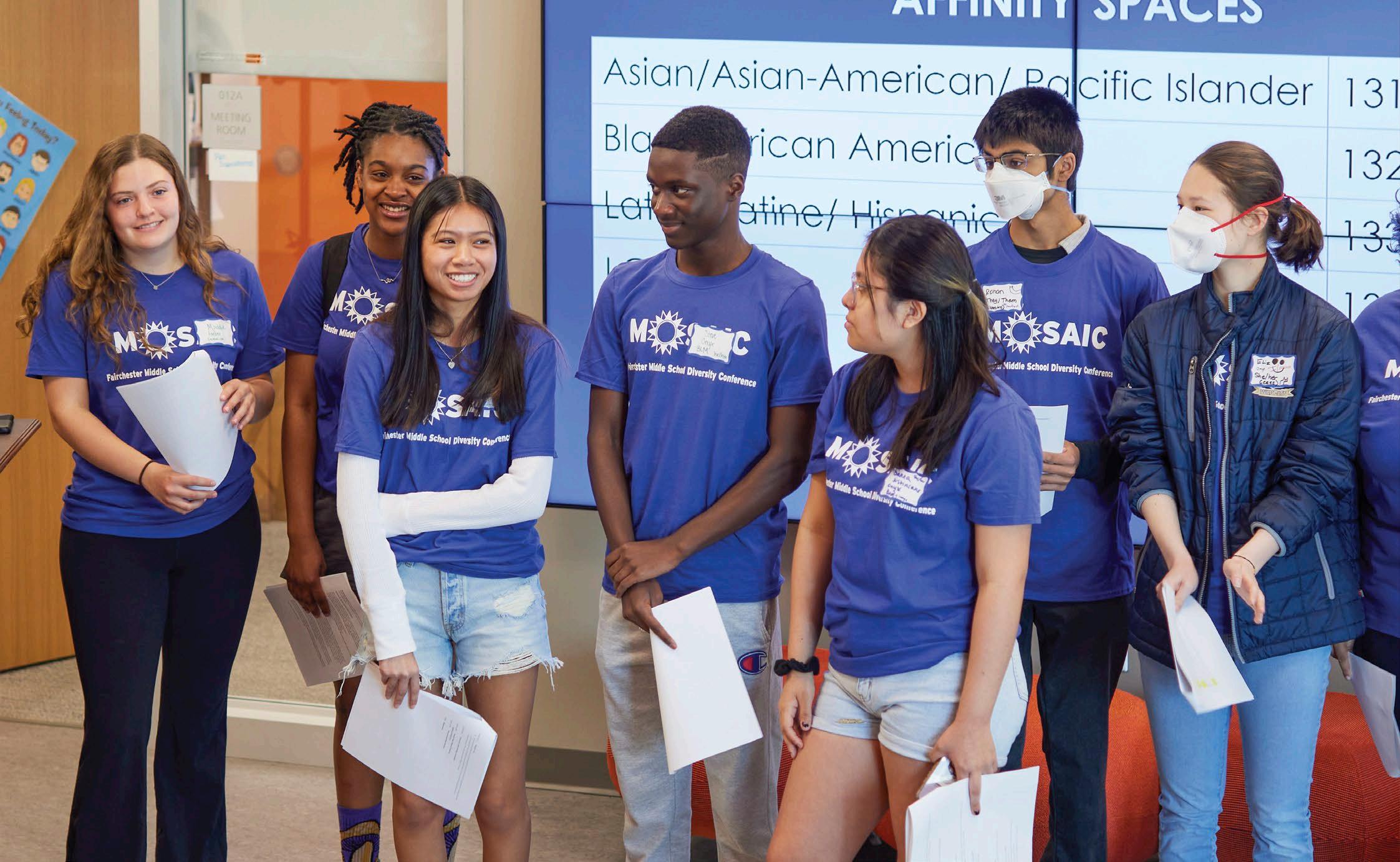
Nigerian novelist Chimamanda Ngozi Adichie shares The Danger of a Single Story in her TED Talk , describing her experiences in forming misperceptions and biases after only being exposed to a single story. After watching this TED Talk and as part of implementing an anti-bias skill set this year, teachers took inventory of the learning environment their students are exposed to each day as they walk into their classrooms. They became conscious of the books and pictures displayed, language used, and lessons taught through the lens of each individual student. They asked themselves, where are opportunities for students to connect? Whose story are we telling? Whose story are we not telling?
Assistant Director of DEI Andrew Ledee said, “What was exciting to see is that because we have been providing the background for this work for many years, teachers began to apply this lens not only to possible ‘single stories’ of race that needed to be broadened, but also family structures, learning styles, religions, etc.”

Grade 1 teacher Caroline Hanley noted the importance of this work, “We want our students to feel proud of who they are, and to show curiosity and feel proud about who their peers are too. We also want them to feel empowered to use their voices in constructive ways when something feels unfair, unkind, or unfamiliar.”
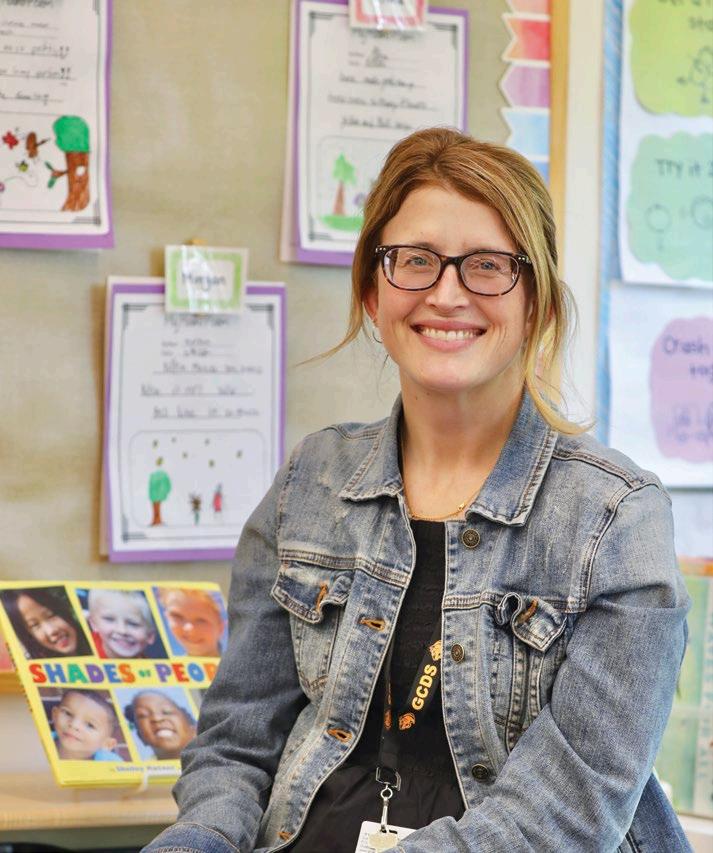
Language norms are one aspect of creating a classroom environment where students feel safe to share who they are, whether that includes their background, family, or favorite food, color, or toy.
It is beautiful to hear expressions like “That’s weird!” being replaced with “That feels new to me” or “I’d like to learn more about that,” said Ms. Hanley.
The danger of a single story, of only experiencing a single perspective, is that we risk misunderstandings and making default assumptions, preventing us from a fuller and more nuanced and accurate view of a situation or a person.
Catherine Georges appreciated the professional development opportunities: “This work is at the heart of building an inclusive community. Anti-bias practices in education broaden perspectives, develop students’ sense of identity, improve their ability to uncover bias, and empower them to stand in support of human dignity and against injustice. It is our hope for the future.”
Mosaic 10th Annual Fairchester Middle School Diversity Conference
On April 30, middle school students from Fairchester League schools participated in the 10th Annual Fairchester Middle School Diversity Conference, also known as MOSAIC. Students explored the importance of identity and diversity in this year’s theme: “Louder and Prouder: Elevating our Voices to Strengthen our Communities”
GCDS Director of Diversity, Equity, and Inclusion Chrissy Colón Bradt shared, “For some of the students this is the first time they are in the company of folks who care about the issues they care about. Some of them are “the only ones” at their schools and this is one of the first times they are in the company of those who share their identity in a school setting. It’s an exposure that lights a fire, with many students returning each year and eventually serving as facilitators themselves. For
VIRTUAL BOOK CLUB FOR GCDS PARENTS/GUARDIANS
Sponsored by the DEI office and the Parents Association Stripes Committee, this year’s GCDS Parent/Guardian Virtual Book Club read and discussed Biased: Uncovering the Hidden Prejudice that Shapes What We See, Think, and Do by Jennifer L. Eberhardt. Middle School Librarian Susan Polos and GCDS parent Jordan Silva co-hosted the meetings in a series of four morning or evening sessions throughout April and May. In the book, Stanford University professor, social psychologist, and author Eberhardt explores what is behind bias, provides insights into the impact it has in the classroom, workplace, and criminal justice system and suggests research-based strategies for addressing bias before and as it appears.
Parent participant and Board of Trustees President Vicki Craver shared, “The GCDS book club was a wonderful opportunity to connect with people in which created powerful takeaways for all of us. We came away having learned something, and with new appreciation for the experiences of members of our community.”
Another parent participant, April Larken, commented, “We were able to express ourselves freely right from the beginning, and I think that speaks volumes about this GCDS community. Some topics from the book were harder to discuss, and occasionally we felt some pretty hard-core emotions (some tears) and while that was difficult in the moment, I always felt a sense of connection afterwards.” )
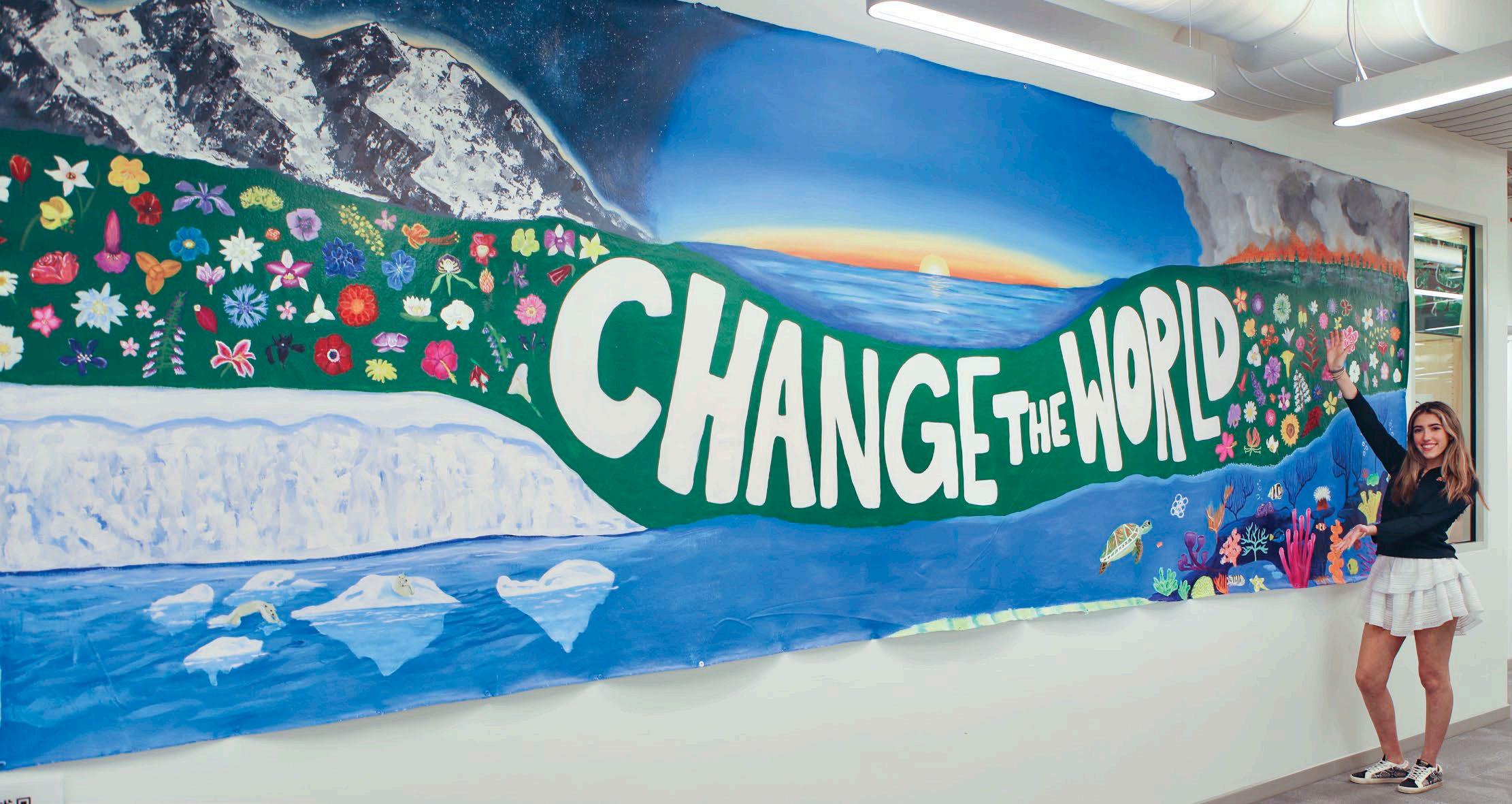
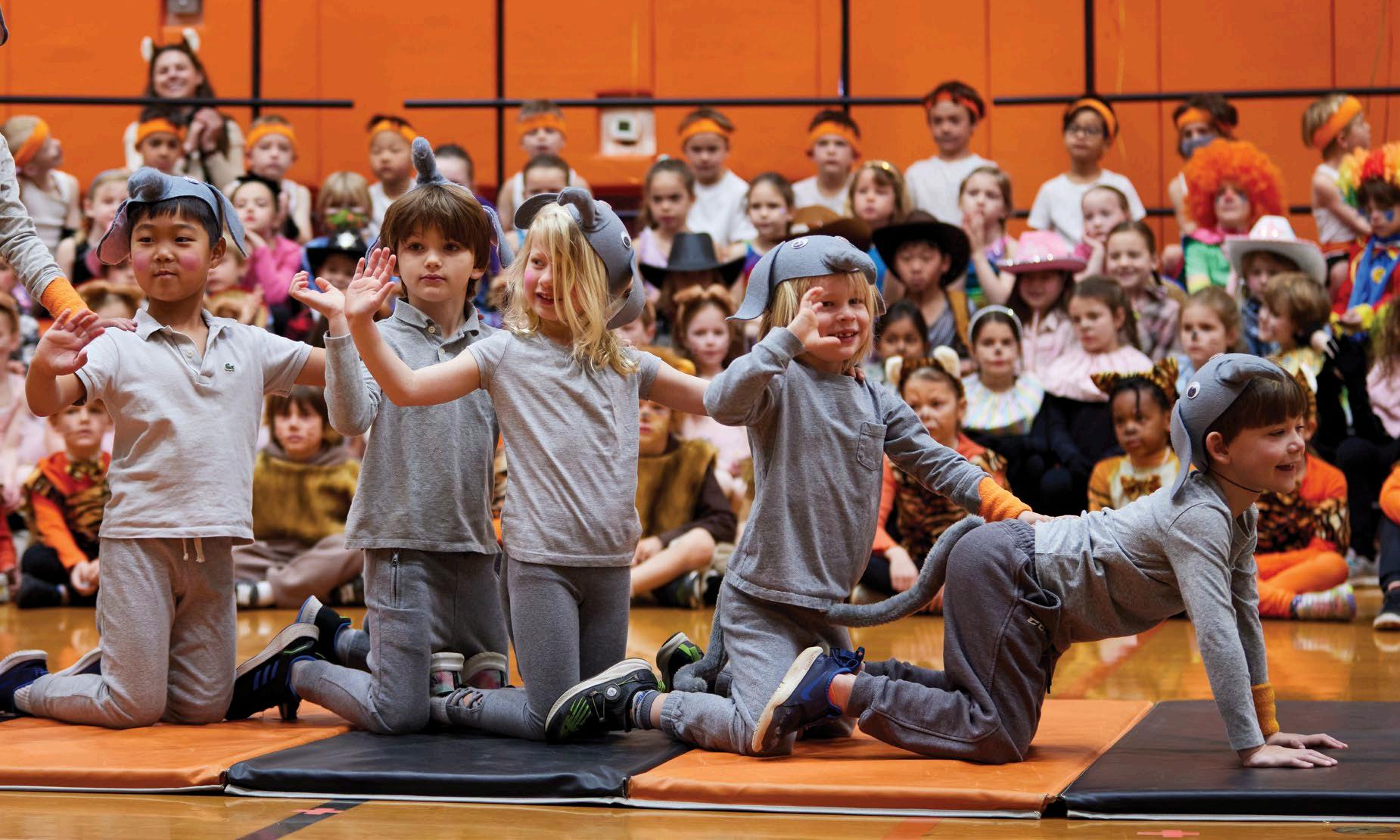
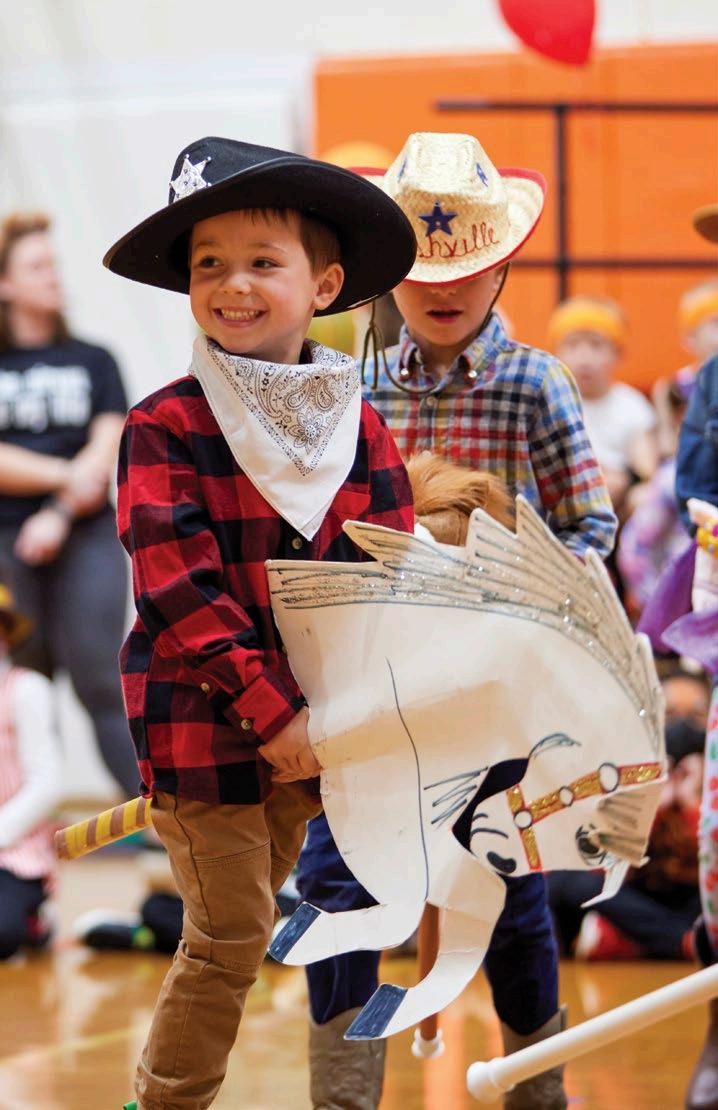
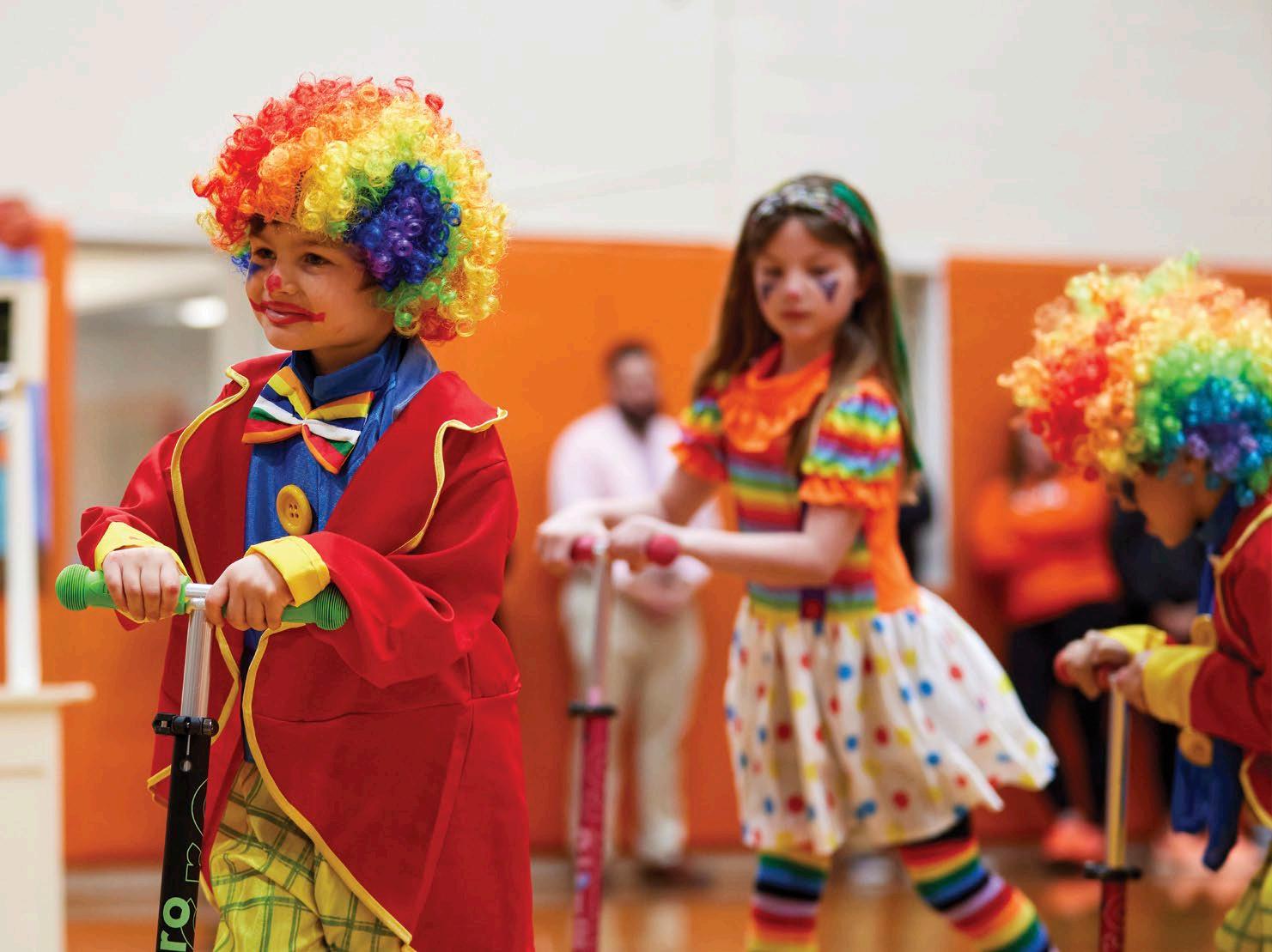
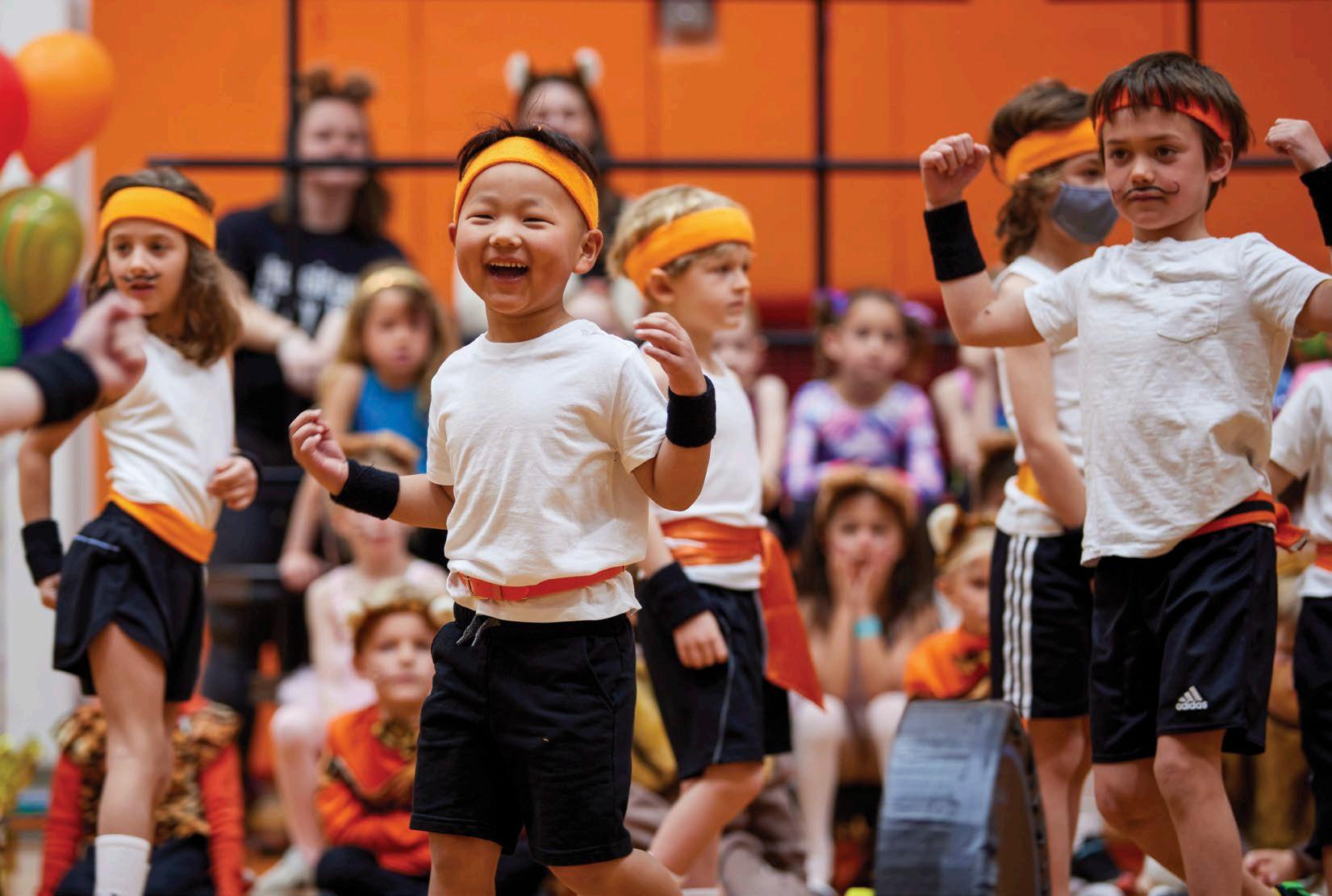
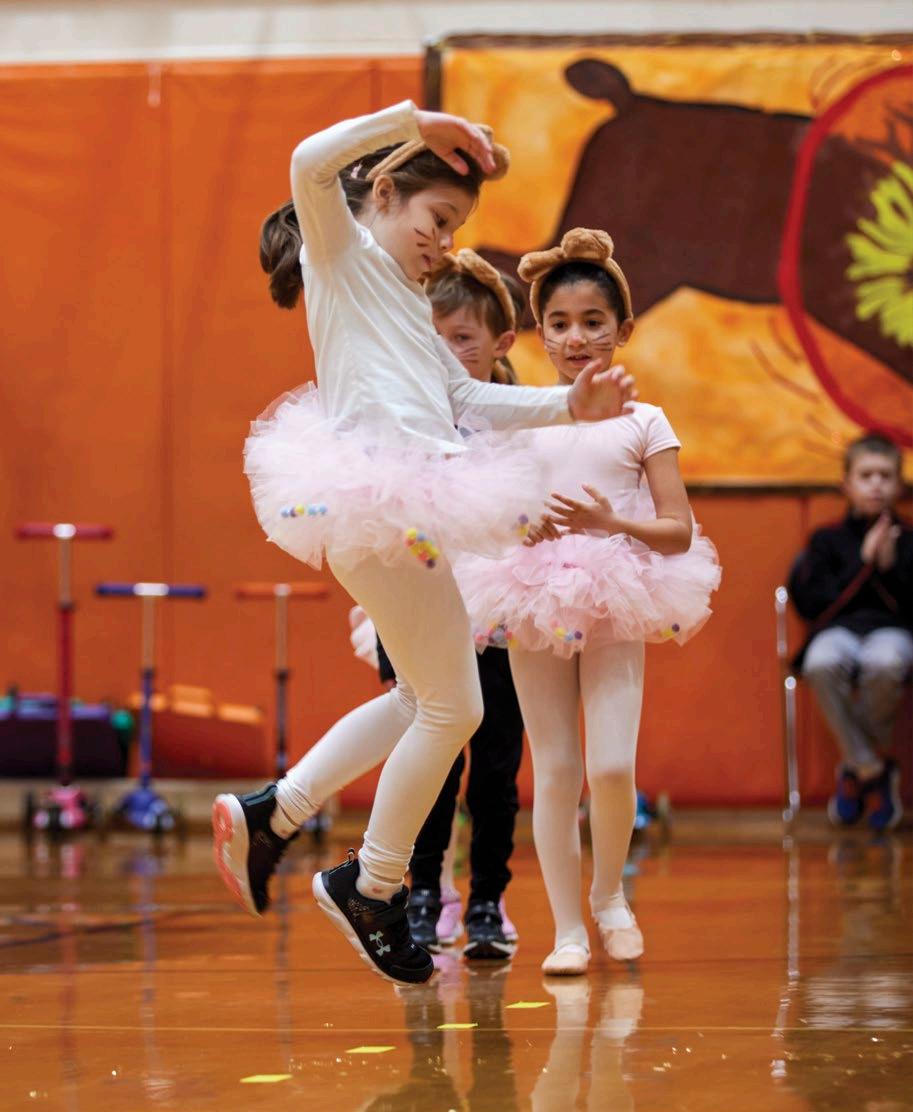

The circus came to town on April 21 and 22! Led by the ringleaders, our Kindergarten performers entered the gymnasium to the cheers of their parents and schoolmates. Elephants, seals, tigers and lions, dancing bears, whirlers and twirlers, clowns, cow folk, and the strong ones dazzled their audience with amazing tricks, fancy dance moves, toe-tapping musical selections, and unexpected surprises. This long-honored GCDS tradition was certainly The Greatest Show on Earth. For the children, the memories will last a lifetime!
